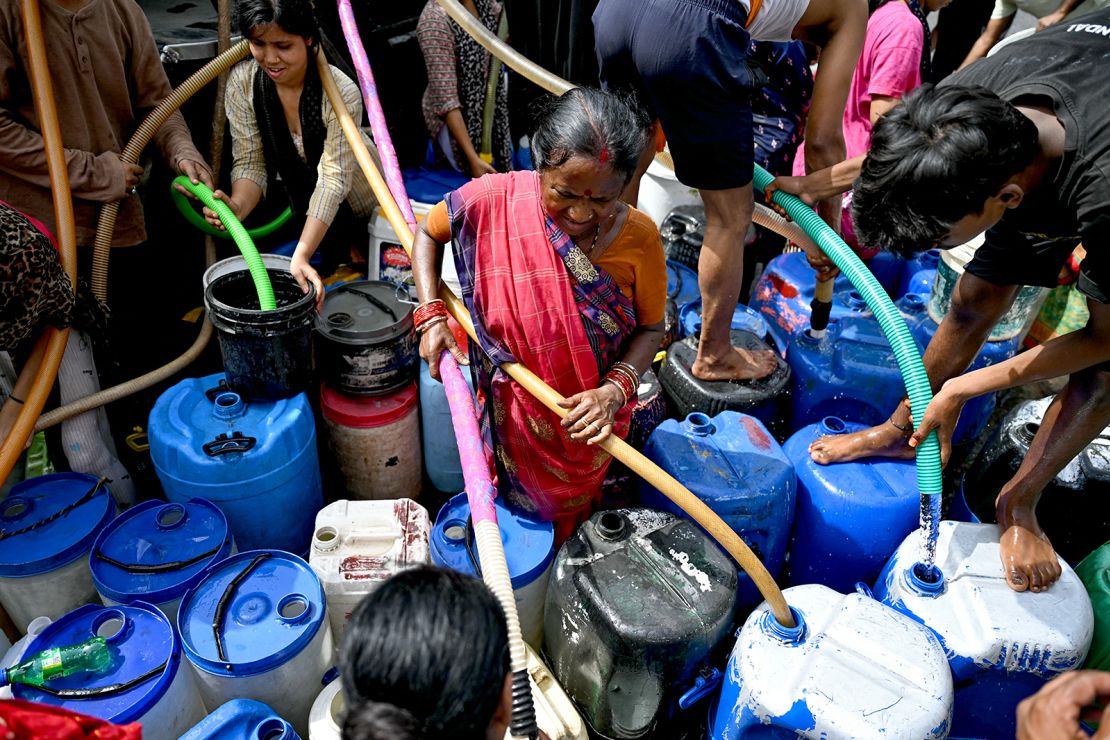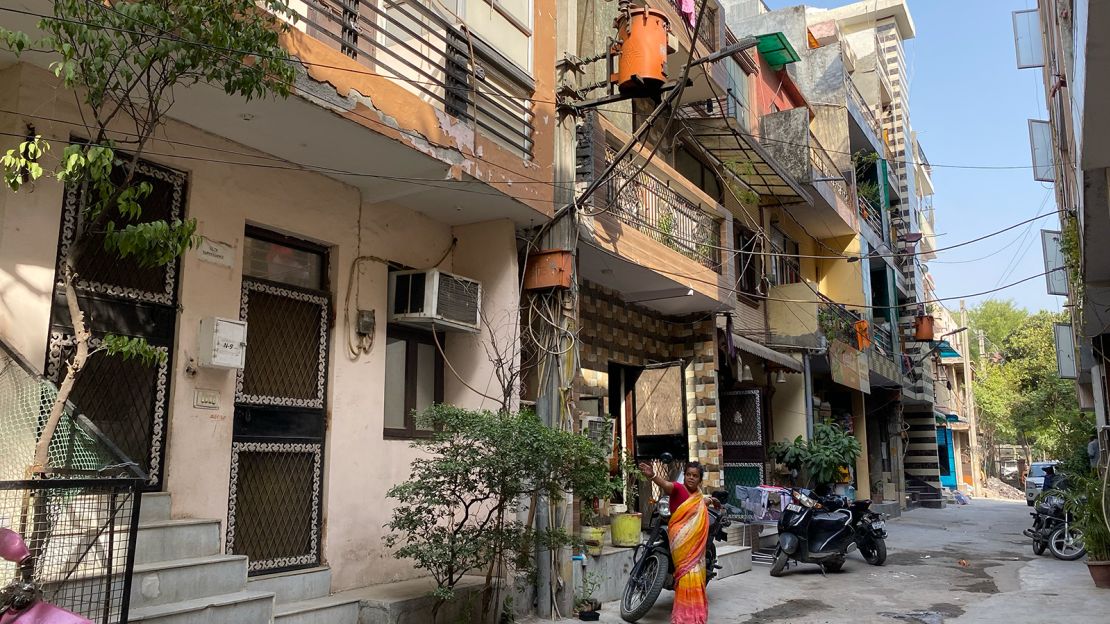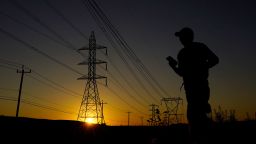Nights are getting uncomfortably and dangerously hotter in India’s capital as people in the world’s most populous nation feel little respite from unrelenting temperatures.
Northern India has endured a scorching summer, with one part of Delhi reaching 49.9 degrees Celsius (121.8 degrees Fahrenheit) in late May — the capital’s highest temperature on record.
But the stifling heat persists even after the blazing sun has set.
The city is cooling down by only 8.5 degrees Celsius at night compared to a 12.2 degrees cooling down in?urban outskirt areas, a report published by the Centre for Science and Environment (CSE) last month tracking urban heat stress in Delhi has found.
The warmer nights deprive people of rest and recovery from long hours of exposure to oppressive heat, particularly for people without access to air conditioning.
Bicycle rickshaw driver Sagar Mandal told CNN that he’s been getting fewer passengers because people opt for air-conditioned taxis over open-air transport.
“My body can’t take it, but I have to keep cycling. We are used to physical labor, we aren’t complaining about that. But this heat is not normal, something has to change,” the 39-year-old, who pedals people around the city, said.
“No one cares if we live or die, no matter who you vote for this is a problem no one can solve,” he said.

Nikhil Kumar, an auto-rickshaw driver said his workdays are getting longer and tougher amid the heat.
“It doesn’t get any better at night, even at night I’m sweating, it rained a little last night but look how hot it is today, there’s no relief,” the 26-year-old driver said.
Hotter nights are a consequence of the climate crisis,?scientists have warned, heightening the health hazards of heat stress.
Studies have shown?higher nighttime temperatures make it harder to fall asleep?and reduce deep wave and REM (rapid eye movement), both critical to how well the body repairs and refreshes itself at night.
In the United States, for example, nights are warming faster than days in most of country, the?2018 National Climate Assessment?found.
Mandal, the cycle-rickshaw driver said he has been sleeping on the roof of his home for some hope of cooler air but only for a couple of hours.
“I barely sleep these days,” he said.
Exposure to heat waves during pregnancy may be associated with adverse outcomes such as preterm birth, according to a?2019 study. Older adults may have higher heart rates and more?physiological stress when sleeping in warmer temperatures. A?2008 Australian study?even found deaths due to mental and behavioral disorders rose during heat waves, especially for older adults.
Power paucity, water woes and heat stress
Increasing nighttime heat is even more common in cities like Delhi because of the?urban heat island effect, in which metro areas are significantly hotter than their surroundings. Areas with?a lot of asphalt and dense concrete buildings absorb more of the sun’s heat than areas with ample parks, rivers and tree-lined streets.
The hot days and nights are testing the limits of the country’s electricity grid and water supply, and the strain on?resources is already making people sick.
“We’ve been living in this neighborhood for 40 years, but we have never seen a summer like this,” said 60-year-old Kalyani Saha, a resident of the Lajpat Nagar neighborhood of the capital city.
“There hasn’t been power for the last two hours, in the middle of the day that’s unbearable,” Saha told CNN, saying that power cuts also render their air-conditioning system useless.
“We get water only once a day, and it’s scalding hot, unless you fill up a bucket and let it cool off all day before using it, you can’t bathe in this water,” she said.
Saha also said her grandson has been ill for a week.
“They’re small, they can’t cope with this, this is not a human level of heat,” she said.

At least 40,000 cases of heat stroke have been reported in India since March, an official in the Ministry of Health told CNN Thursday, and at least 110 people have died across the country due to suspected heat stroke as well.
Dr Ajay Chauhan, in charge of the first of its kind heat-stroke unit at Delhi’s Ram Manohar Lohiya (RML) hospital says hotter nights mean increased stress on the bodies.
“When a person has a heat stroke, things progress very quickly, so without early intervention the fatality rate of heat strokes is very high,” Chauhan said.
Chauhan said people who work outdoors all day need time to cool down and recover but he concedes “that’s not been possible.”
At least 11 people have died as a result of heat strokes at his hospital since May 29 and on Thursday alone over 20 new patients were admitted to the hospital for various heat-related illnesses.
Over the past five decades, India has experienced more than 700 heat wave events claiming more than 17,000 lives, according to a 2021 study of extreme weather in the Weather and Climate Extremes journal.
Delhi recorded the highest numbers of homeless deaths in the last five years during the 9-day stretch.
Between June 11 and 19, Delhi saw 192 heatwave-related deaths among its homeless?population, a record high compared with the same?period in the last five years, according to a report from the NGO Centre for Health Development India.
“Almost everyone living on the streets reported experiencing sleeplessness,” the report said, adding that they suffered from several heat-related ailments.

Sarita Kumari has been sleeping on the streets of Delhi with her three children, and told CNN her three-year-old son has been running a high fever all week.
“We do have a house but there’s a lot of us and when the power goes it gets suffocating,” Kumari said.
Correction: A previous version of this story misstated the all-time Delhi temperature record. It has been updated.



